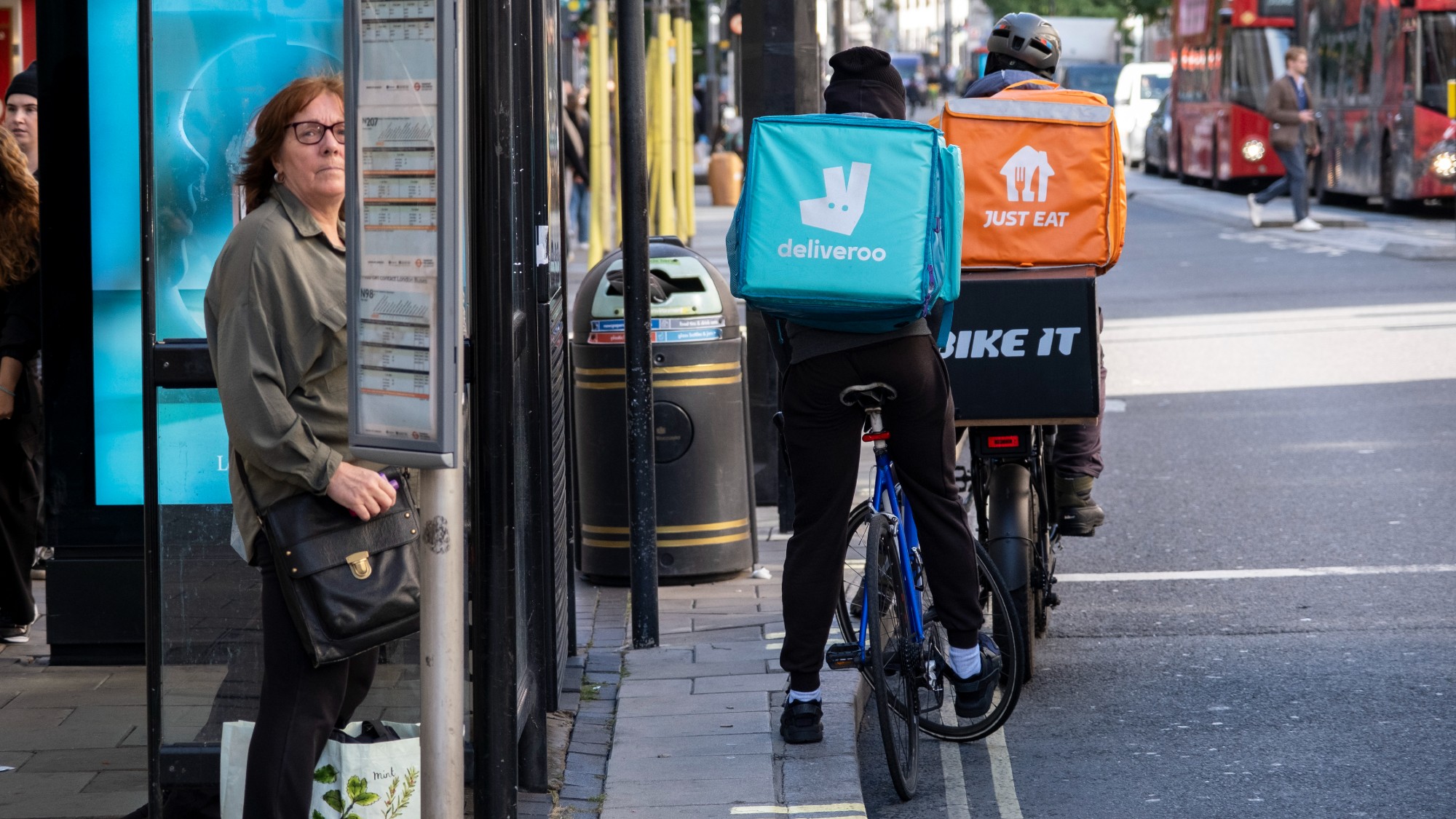Champagne problems: migrant vineyard workers treated 'like slaves'
Convictions spotlight the 'exploitation and misery' at the heart of the 'glamorous' industry

A free daily email with the biggest news stories of the day – and the best features from TheWeek.com
You are now subscribed
Your newsletter sign-up was successful
Three people have been jailed by a French court for the "human trafficking of undocumented migrants" working "like slaves" picking grapes for the champagne industry, said France24.
A director of recruitment company Anavim, from Kyrgyzstan, and her two male associates, one from Georgia, one from France, were sentenced on Monday. The Anavim director, who was also found guilty of "concealing employment of workers", will serve two years in prison with another two years suspended, while the two men will be jailed for one year with a suspended term to follow.
The court heard that more than 50 individuals were exploited, forced to work 13-hour shifts, left with "no food or water" and housed in "appalling" conditions in an abandoned building.
The Week
Escape your echo chamber. Get the facts behind the news, plus analysis from multiple perspectives.

Sign up for The Week's Free Newsletters
From our morning news briefing to a weekly Good News Newsletter, get the best of The Week delivered directly to your inbox.
From our morning news briefing to a weekly Good News Newsletter, get the best of The Week delivered directly to your inbox.
The 'exploitation and misery' in a 'glamorous' business
The victims, mainly from West Africa, ranged in age from 16 to 65, and were recruited through a WhatsApp group which "promised 'well-paid work' in the Champagne region", said the BBC. Instead, workers were not given written contracts, were regularly underpaid, and some were not paid at all,
In September 2023, labour inspectors following a tip-off found workers living in "cramped and unhygienic conditions" in the "heart of champagne country". State prosecutor Annick Browne said their living quarters constituted a "serious breach of the occupants' safety, health and dignity". One worker put it bluntly, telling the court that "even animals enjoyed better conditions", said The Times.
The case has drawn fresh attention to the "exploitation and misery" behind this "glamorous" business, concerns that extend beyond working conditions to the very economics that sustain them. Anavim sold grapes to subcontractors for prices far below the "standard market price of €6.35 [£5.51] per kilo" in 2023, sometimes as little as €0.45 (39p) per kilo, to a subcontractor which resold them to champagne houses for up to €0.60 (52p) per kilo. The subcontractor said that "at least 14 champagne houses" had purchased grapes picked by these exploited workers.
A system of 'Russian dolls'
The Anavim case is only the latest in a "string of controversies" to hit the champagne industry, said The Guardian. In an investigation published in December 2024, the newspaper described how four workers died from "suspected sunstroke" during the 2023 harvest.
A free daily email with the biggest news stories of the day – and the best features from TheWeek.com
Unions blame vineyards owners for "continuing to blindly accept cheap labour", with the justification that they are "helping African migrants" by giving them employment. The sector, they claim, is also responsible for "failing to ban exploitative labour providers" such as Anavim. Yet, regulation is difficult because of chains of subcontracting throughout the industry, resulting in a system of "Russian dolls", where one company subcontracts to another, and so on.
Vineyard owners have pointed the finger at these subcontractors, said Henry Samuel in The Telegraph. Ahead of the 2025 harvest – set to begin next month – authorities have ramped up efforts to tackle exploitation, including the deployment of 22 labour inspectors and 84 police officers "to oversee the harvest on a daily basis".
-
 6 exquisite homes with vast acreage
6 exquisite homes with vast acreageFeature Featuring an off-the-grid contemporary home in New Mexico and lakefront farmhouse in Massachusetts
-
 Film reviews: ‘Wuthering Heights,’ ‘Good Luck, Have Fun, Don’t Die,’ and ‘Sirat’
Film reviews: ‘Wuthering Heights,’ ‘Good Luck, Have Fun, Don’t Die,’ and ‘Sirat’Feature An inconvenient love torments a would-be couple, a gonzo time traveler seeks to save humanity from AI, and a father’s desperate search goes deeply sideways
-
 Political cartoons for February 16
Political cartoons for February 16Cartoons Monday’s political cartoons include President's Day, a valentine from the Epstein files, and more
-
 Ski town strikers fight rising cost of living
Ski town strikers fight rising cost of livingThe Explainer Telluride is the latest ski resort experiencing a patroller strike
-
 Employees are branching out rather than moving up with career minimalism
Employees are branching out rather than moving up with career minimalismThe explainer From career ladder to lily pad
-
 Out of office: Microretirement is trending in the workplace
Out of office: Microretirement is trending in the workplaceThe explainer Long vacations are the new way to beat burnout
-
 Being a school crossing guard has become a deadly job
Being a school crossing guard has become a deadly jobUnder the Radar At least 230 crossing guards have been hit by cars over the last decade
-
 Why 'faceless bots' are interviewing job hunters
Why 'faceless bots' are interviewing job huntersIn The Spotlight Artificial intelligence is taking over a crucial part of recruitment
-
 How many people are working illegally in the UK?
How many people are working illegally in the UK?The Explainer Government vows 'nationwide blitz' on illicit workforce believed to number in the hundreds of thousands
-
 What is 'career catfishing' and why are Gen Z doing it?
What is 'career catfishing' and why are Gen Z doing it?Under The Radar Successful job applicants are increasingly disappearing before their first day
-
 Why bosses are hiring etiquette coaches for Gen Z staff
Why bosses are hiring etiquette coaches for Gen Z staffUnder The Radar Employers claim young workers are disengaged at interviews and don't know how to behave in the office